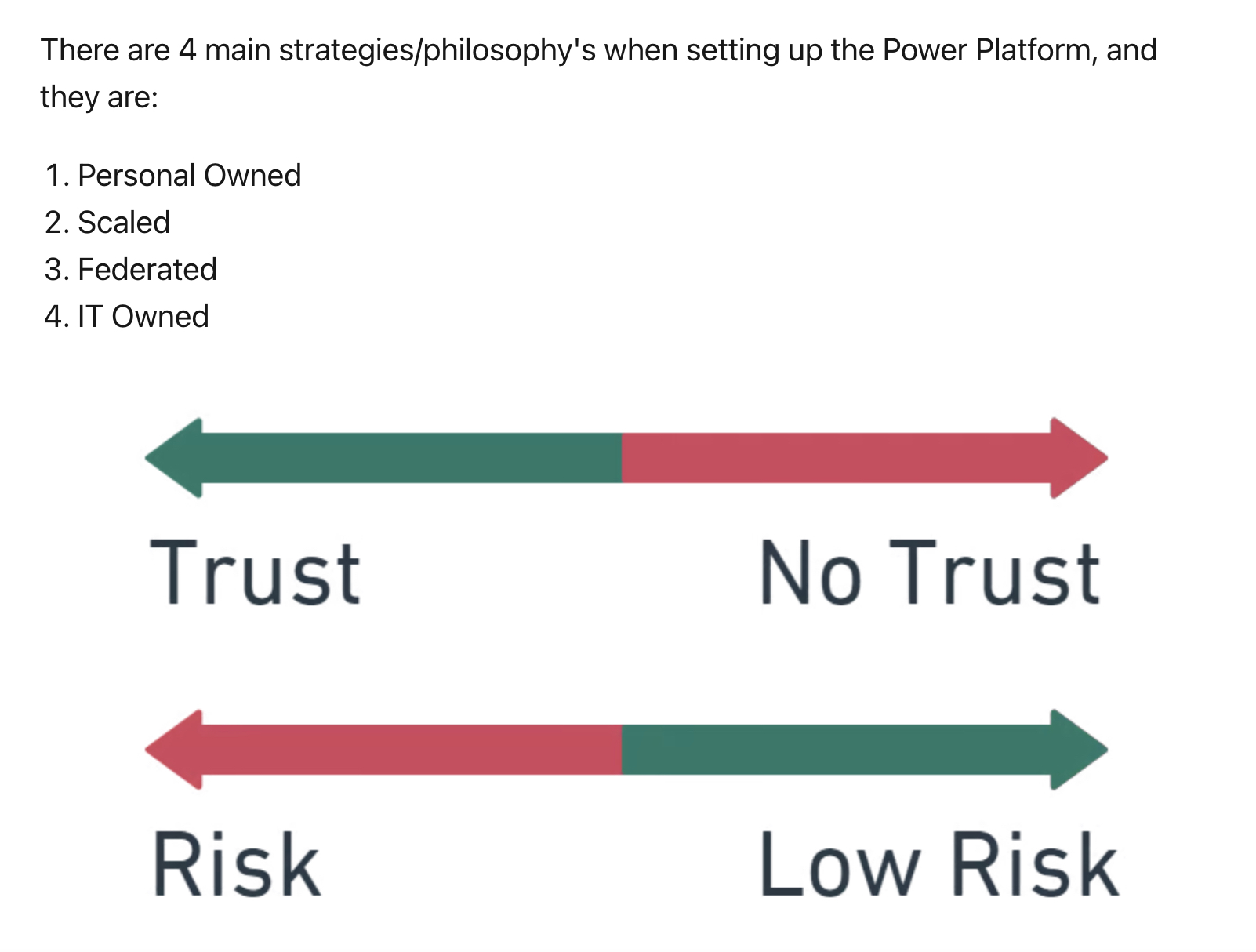
Optimize Your Business with Power Platform Strategy
Explore Power Platform Strategies: Business Owned, Scaled, Federated, or IT Owned—Which Fits Your Goals?
Key insights
- The Power Platform serves as a Citizen Developer platform, offering a range of strategic models for business implementation, grouped into Personal Owned, Scaled, Federated, and IT Owned.
- Each strategy reflects different levels of IT involvement and trust, ranging from high trust and autonomy in the Personal Owned model to strict IT control in the IT Owned model.
- Implementation models like Full Citizen Developer, Business Managed, Staged, and IT Integration Tool each offer unique advantages and challenges, often shaped by the level of user autonomy and governance.
- Key aspects like development environment setup, solution governance, and environment ownership vary significantly across strategies, influencing the platform's effectiveness and security.
- Strategically aligning the chosen Power Platform model with organizational goals and understanding its practical impacts are crucial for successful implementation.
The Power Platform’s Strategic Integration Into Businesses

Understanding the Power Platform's Strategic Models
Exploring the Power Platform highlights its nature as a Citizen Developer platform, accessible like Excel but built upon Dynamics CRM's robust features. This intersection offers flexibility, requiring owners to deliberate on integrating aspects of Excel or CRM into their business strategies.
The platform supports diverse strategic methodologies, allowing for personalized or broader implementation. These strategies include Personal Owned, Scaled, Federated, and IT Owned, each presenting distinct risks and trust levels.
These philosophies shape how businesses adopt and manage the platform:
- Business Owned: Delegated to users by IT, it offers autonomy in creating solutions, reflecting a trust-centric approach.
- Scaled: Features varied controls over solutions based on their intricacy, with IT's involvement fluctuating according to defined indicators.
- Federated: Enables business teams to manage their environments under IT governance without IT managing the process directly.
- IT Owned: The platform is strictly managed by IT, utilized solely by IT professionals to enhance productivity, barring citizen developers.
The platform strategies extend into four main models, each addressing different organizational needs and governance levels: Full Citizen Developer, Staged, Business Managed, and IT Integration Tool. These models differ significantly in their approach to development, governance, and level of IT involvement.
Read the full article What's Your Power Platform Strategy

People also ask
What is Power Platform in simple words?
What skills do you need for Power Platform?
To excel as a Microsoft Power Platform Developer, one should possess deep knowledge in Power Apps, Power Automate, Power BI, and Power Virtual Agents. Additionally, a robust understanding of Microsoft Azure services and adeptness in handling data manipulation techniques is crucial.What are the four components of a Power Platform?
Microsoft Power Platform encompasses four core components, specifically Power BI, Power Apps, Power Automate, and Power Virtual Agents. Complementary elements often utilized include Dataflex Pro (Common Data Service), AI Builder, and UI Flow (a part of Power Automate).What is the goal of Power Platform?
The main objective of the Power Platform is to establish a cyclical process enabling users to first gain data-driven insights, then apply these insights to develop intelligent business applications, and finally, automate these processes to enhance efficiency and accuracy.
Keywords
Power Platform strategy, Microsoft Power Platform, business automation, Power BI solutions, PowerApps development, Power Automate workflows, Power Virtual Agents, enterprise integration tools